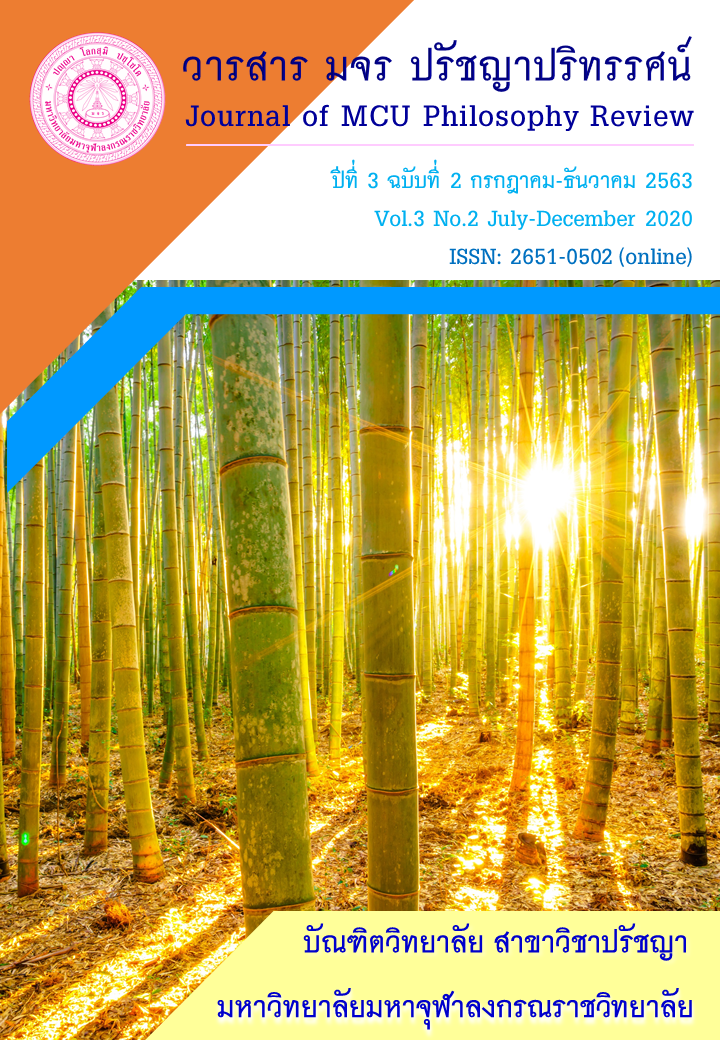Freedom and Love in Theravada Buddhist philosophy
Main Article Content
Abstract
This article entitled to analyze freedom and love in Theravada Buddhist philosophy. This is a qualitative research done by studying academic documents. It was found that does freedom has to be free from love? Sartre insists that all human beings are sworn free. And see that freedom and love go together But Sartre's kind of love is something that should not be under the influence of society. Or under what makes us not who we are while Theravada Buddhist philosophy viewed freedom as having the intention of doing action and the lack of knowledge of karma means that freedom still exists. While love is a teaching that does not deny the way of freedom in any way. Instead, it encourages the development of love and love to a level that is no longer necessary with intent. Is to let go from attachment, therefore it is complete freedom.
Article Details
บทความที่ได้รับการตีพิมพ์เป็นลิขสิทธิ์ของวารสาร มจร ปรัชญาปริทรรศน์
ข้อความในบทความที่ได้รับการตีพิมพ์ในวารสาร ถือเป็นความรับผิดชอบของผู้เขียนบทความ และข้อคิดเห็นนั้นไม่ถือว่าเป็นทัศนะและความรับผิดชอบของกองบรรณาธิการวารสาร มจร ปรัชญาปริทรรศน์
References
พระมหาขวัญชัย กิตฺติเมธี. (2560). ศึกษาวิเคราะห์แนวคิดเรื่องความรักและการแต่งการในพุทธปรัชญาเถรวาท. วารสารสันติศึกษาปริทรรศน์ มจร ปีที่ 5 ฉบับพิเศษ.
เพลโต. ปรัชญาความรัก. แปลโดย พินิจ รัตนกุล. กรุงเทพมหานคร : ดับเบิ้ลนายน์, 2543.
สมภาร พรมทา. พุทธปรัชญา. พิมพ์ครั้งที่ 2. กรุงเทพมหานคร : ศยาม, 2548.
Manuel Bremer. “The Egological Structure of Consciousness:Lessons from Sartre for Analytical Philosophy of Mind”. A Companion to Phenomenology and
Existentialism. Edited by Hubert L. Dreyfus and Mark A. Wrathall. Oxford: Blackwell Publishing Ltd, 2006.


